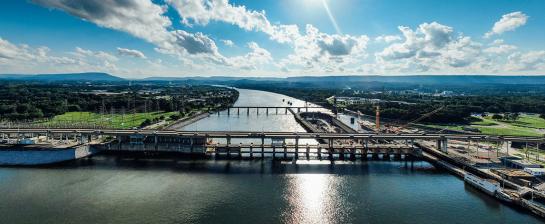As populations grow and the climate changes, competition for water resources is increasing.
The Nicholas Institute for Energy, Environment & Sustainability’s Water Policy Program is an interdisciplinary effort focused on utilizing data to inform effective policy changes in how water is understood and managed. These efforts span understanding to increase water-management flexibility for reservoirs under a changing climate and to develop market-based approaches for water allocation.
The program also partners annually to host the Aspen-Nicholas Water Forum, jointly convened by the Aspen Institute's Energy and Environment Program and Duke University's Nicholas Institute for Energy, Environment & Sustainability. The forum serves as a platform for addressing domestic water challenges in the 21st century—from the drought in California to the need for policy solutions that address water trading opportunities—and to develop forward-thinking pathways to improve our water system, including the Internet of Water Coalition.











